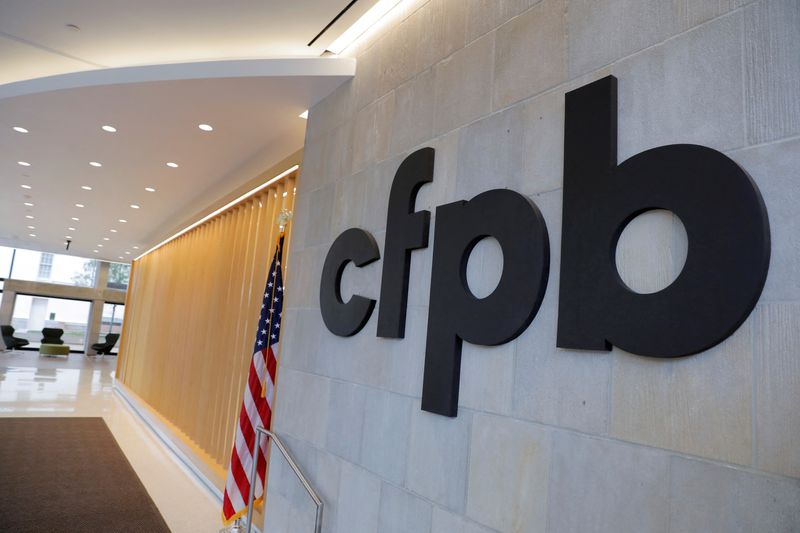By John Kruzel
WASHINGTON (Reuters) -The U.S. Supreme Court on Monday agreed to decide whether the Consumer Financial Protection Bureau's funding structure established by Congress violates the U.S. Constitution in a case that President Joe Biden's administration has said threatens the agency's ability to function and risks market disruption.
The justices took up the CFPB's appeal of a lower court's ruling in a lawsuit brought by trade groups representing the payday loan industry that the agency's funding mechanism violated a constitutional provision giving lawmakers the power of the purse. The agency, which enforces consumer financial laws, draws money each year from U.S. Federal Reserve earnings rather than budgets passed by Congress.
The case is the latest to come before the Supreme Court seeking to rein in the authority of federal agencies. The court's 6-3 conservative majority has signaled skepticism toward expansive regulatory power in rulings in recent years including one in 2022 that limited the Environmental Protection Agency's authority to issue sweeping regulations to reduce carbon emissions from power plants.
A CFPB spokesperson, welcoming the court's decision to hear the appeal, said there is nothing "novel or unusual" about the agency's funding structure.
"As it did for the Federal Reserve Board and other federal banking regulators, Congress authorized the CFPB's funding through legislation other than annual spending bills," the spokesperson said. "This type of funding is a vital part of the nation's financial regulatory system, providing stability and continuity for the agencies and the system as a whole."
The justices will hear the case during the court's next term, which begins in October. Biden's administration had asked that the case be heard in the court's current term.
The CFPB was created by Democratic-led Congress in 2010, following the 2008 financial crisis, as part of a federal law called the Dodd–Frank Wall Street Reform and Consumer Protection Act.
"Despite years of desperate attacks from Republicans and corporate lobbyists, the constitutionality of the CFPB and its funding structure have been upheld time and time again," said Democratic U.S. Senator Elizabeth Warren, who championed the agency's formation and is a staunch defender of its mission. "If the Supreme Court follows more than a century of law and historical precedent, it will strike down the 5th Circuit's decision before it throws our financial markets and economy into chaos."
A lawyer for the trade groups did not immediately respond to a request for comment.
The Community Financial Services Association of America and the Consumer Service Alliance of Texas sued in 2018. They argued that the CFPB's "perpetual budget" was improperly exempted from congressional supervision, violating the constitutional principle of separation of powers among the U.S. government's executive, legislative and judicial branches.
The lawsuit also took aim at a CFPB regulation designed to curb "unfair" and "abusive" payday lending practices. The 2017 rule barred lenders from trying to withdraw loan repayments from a borrower's bank account after two consecutive attempts failed due to insufficient funds unless the consumer consented.
A federal judge in 2021 sided with the agency. But the New Orleans-based 5th U.S. Circuit Court of Appeals last October ruled that the funding structure violated the Constitution's "appropriations clause," which vests spending authority in Congress. The decision, by a panel of three judges appointed by Republican then-President Donald Trump, also vacated the 2017 regulation.
Biden's administration told the Supreme Court that the CFPB's funding structure devised by Congress - providing that a fixed amount go to the agency each year - was effectively "a standing, capped lump-sum appropriation." The Fed last fiscal year transferred around $642 million to the agency.
The Supreme Court ruled 5-4 in another case in 2020 that legal restrictions on a president's ability to fire the CFPB director without cause was an unconstitutional infringement upon presidential authority, though the justices stopped short of invalidating the agency.
The court heard arguments in November in two further cases involving agency power. The conservative justices in those cases appeared inclined to make it easier to challenge the regulatory power of agencies in disputes involving the Federal Trade Commission and the Securities and Exchange Commission.
